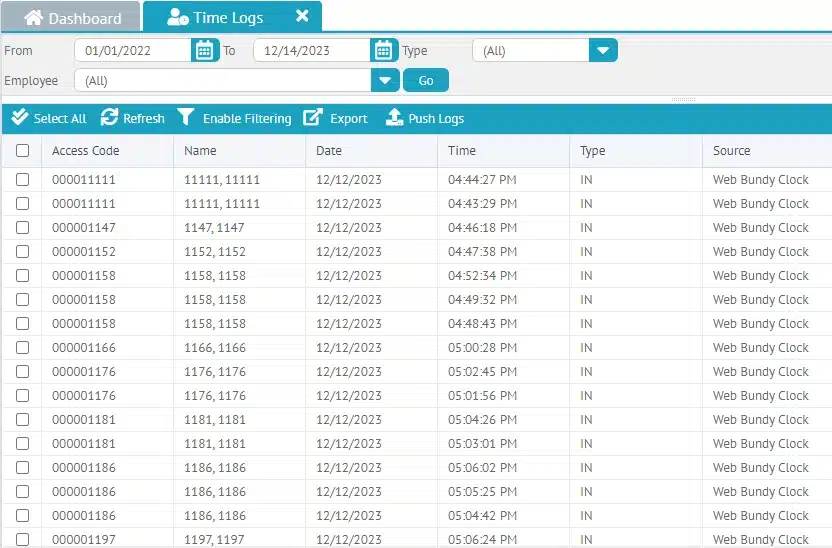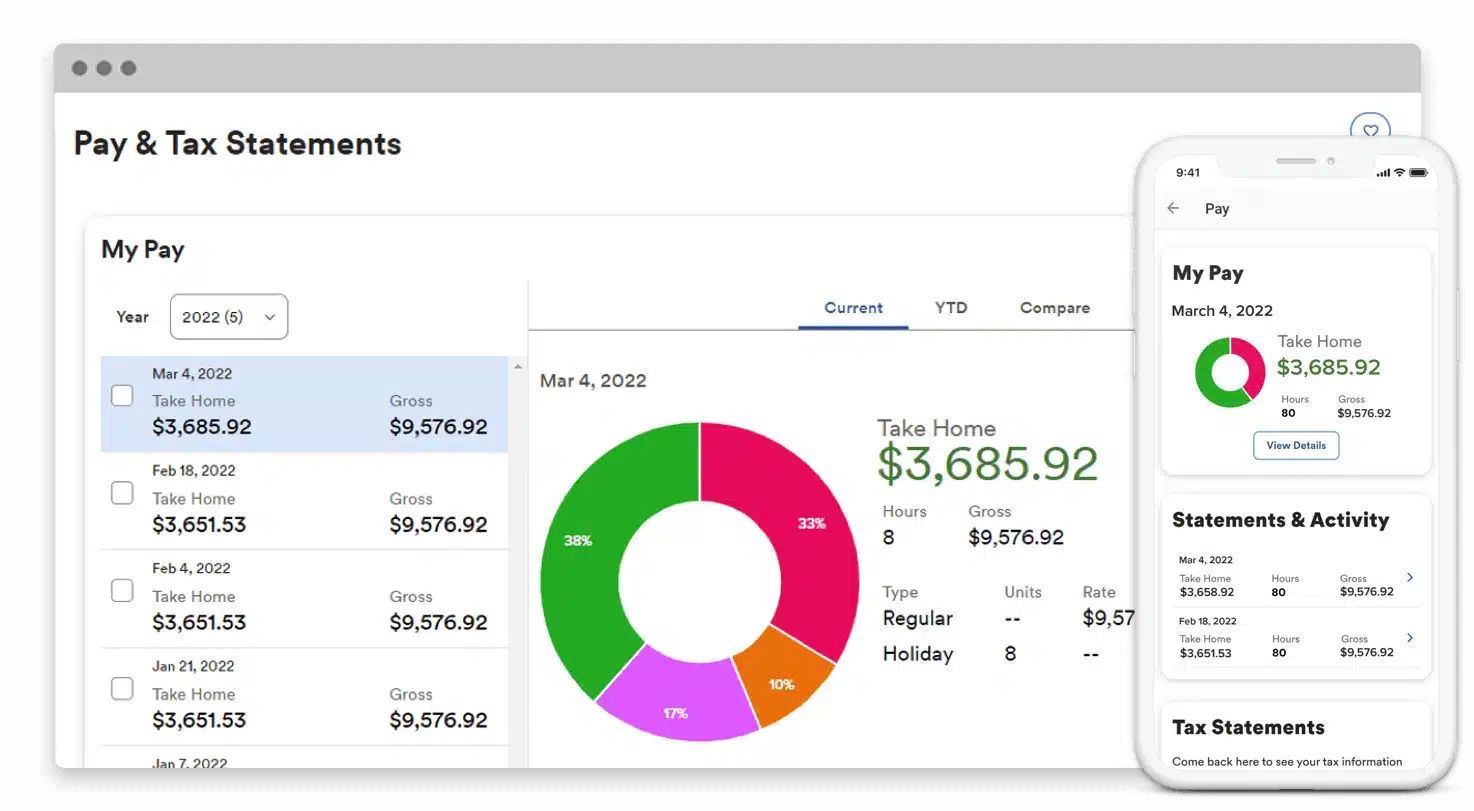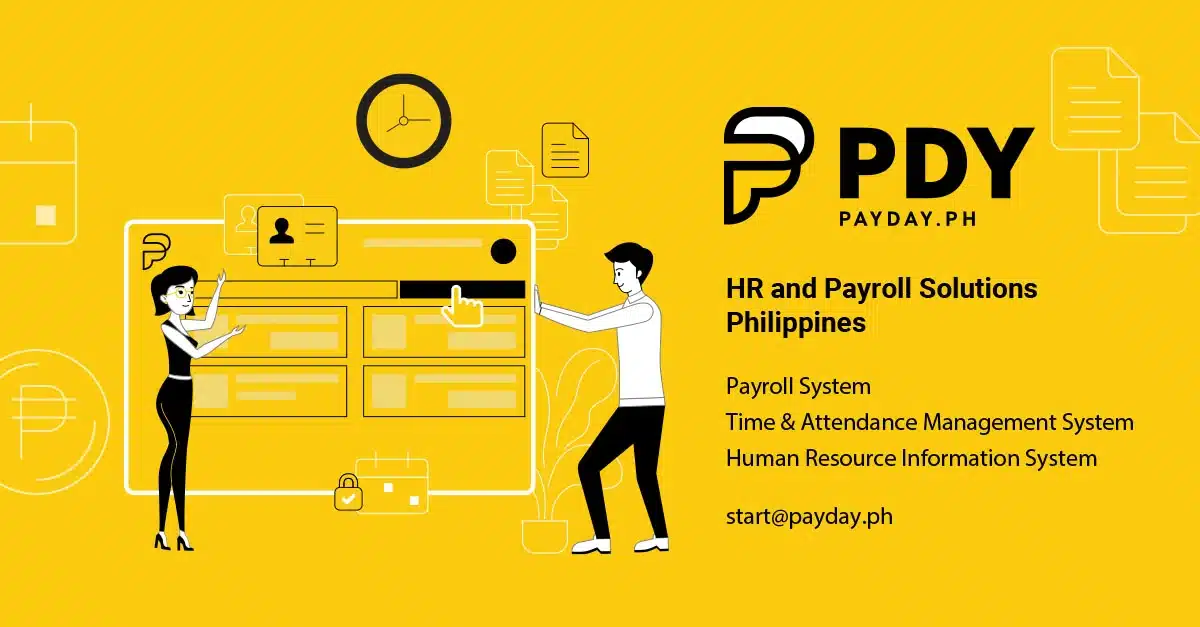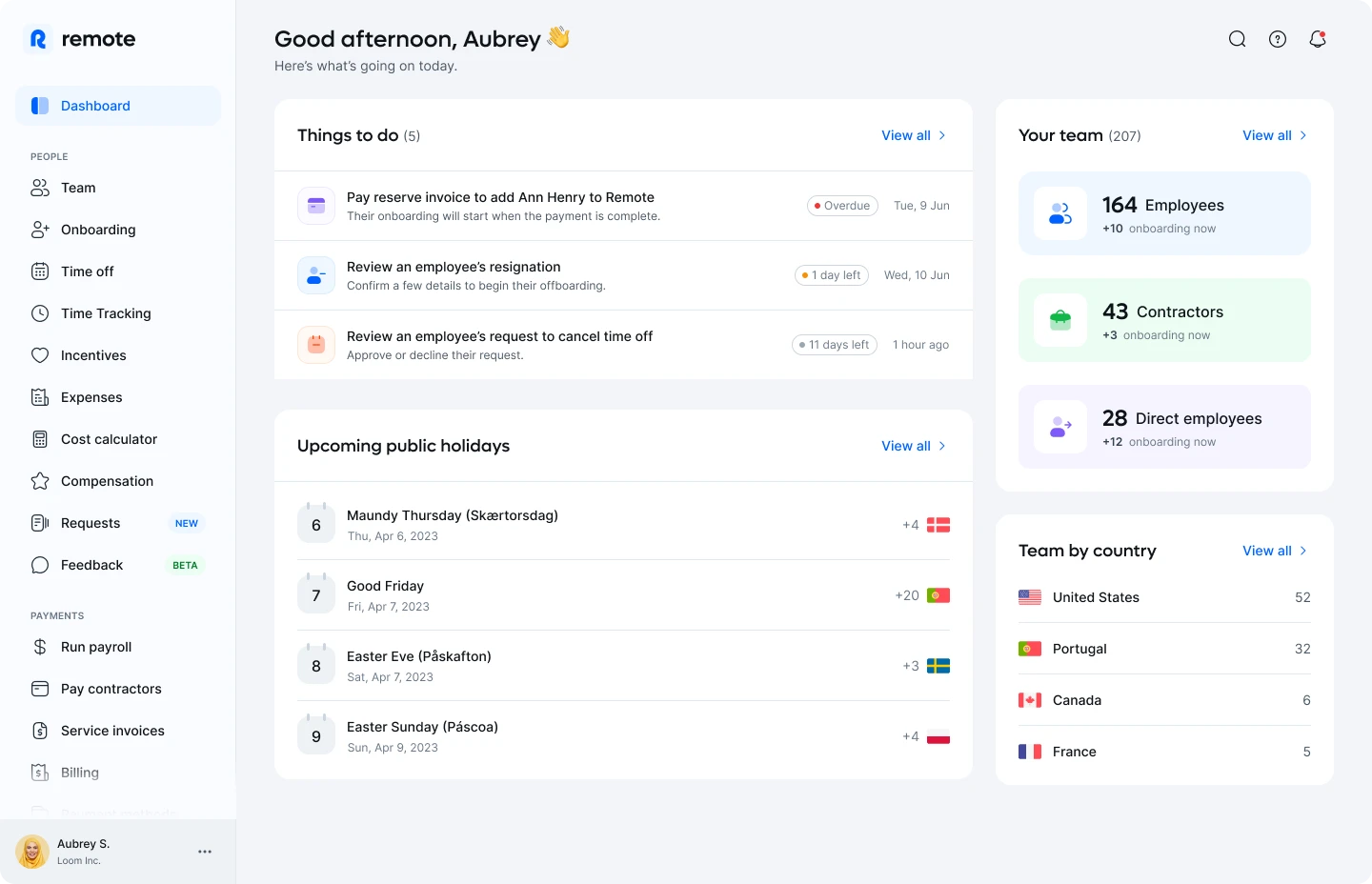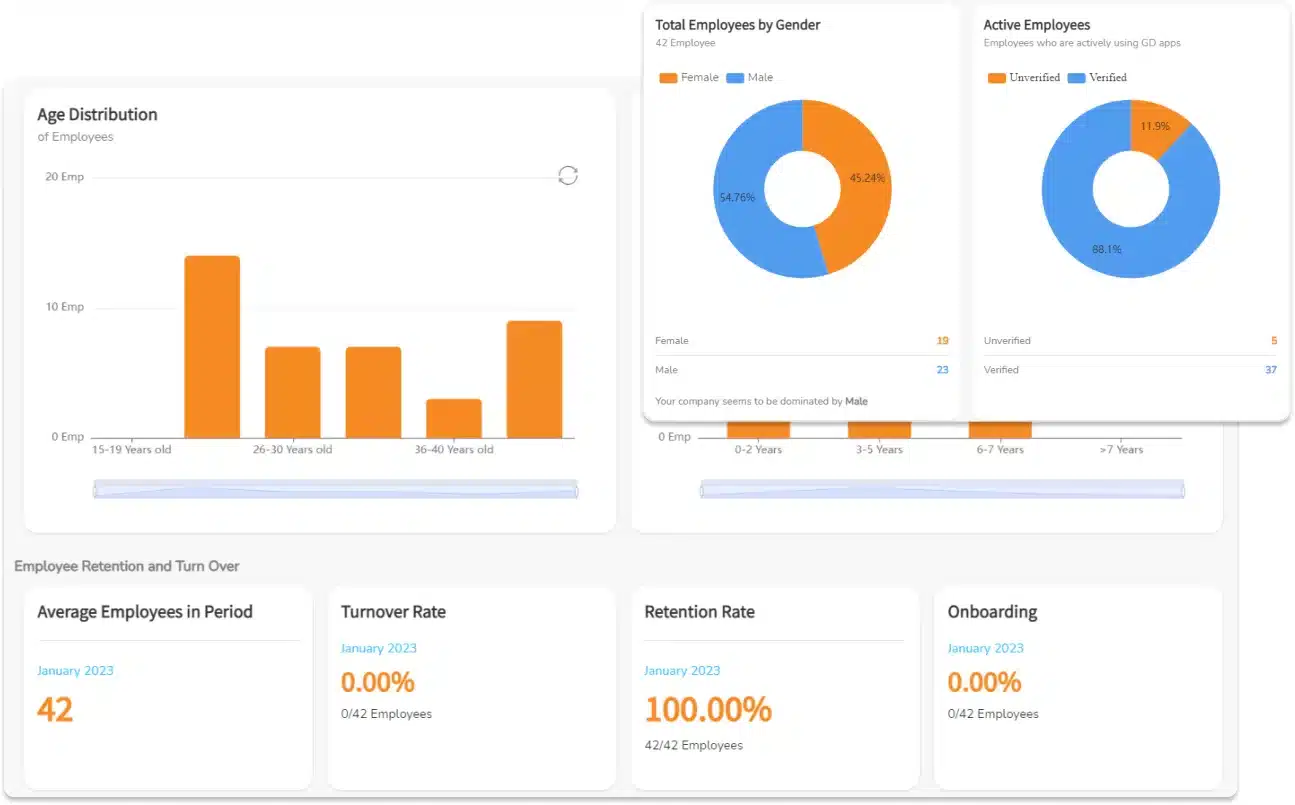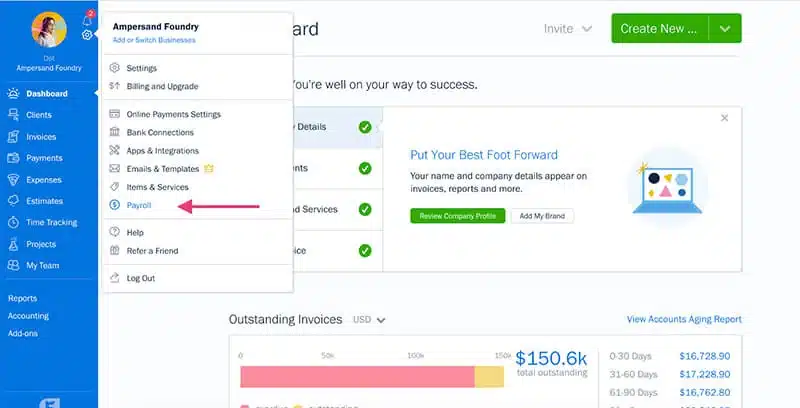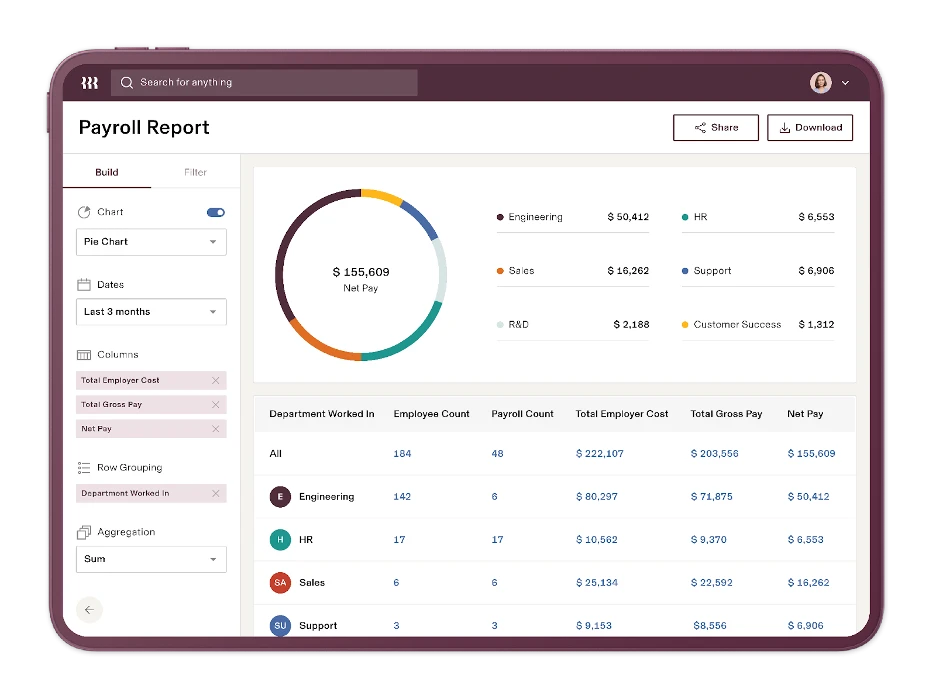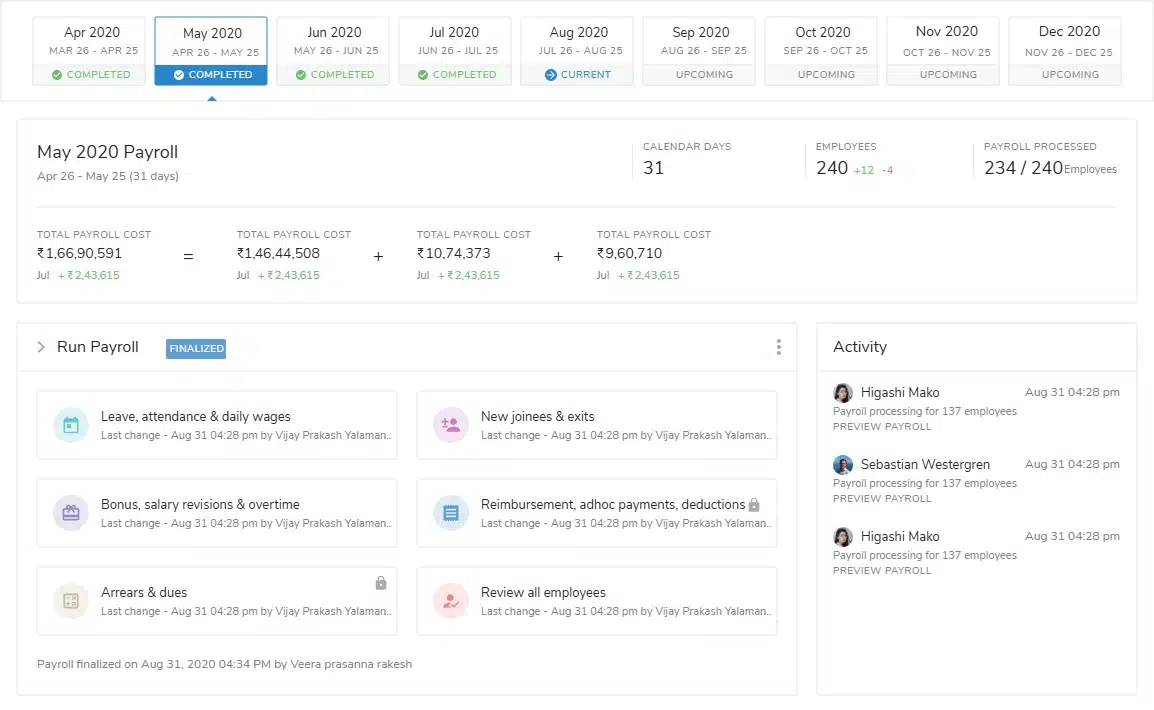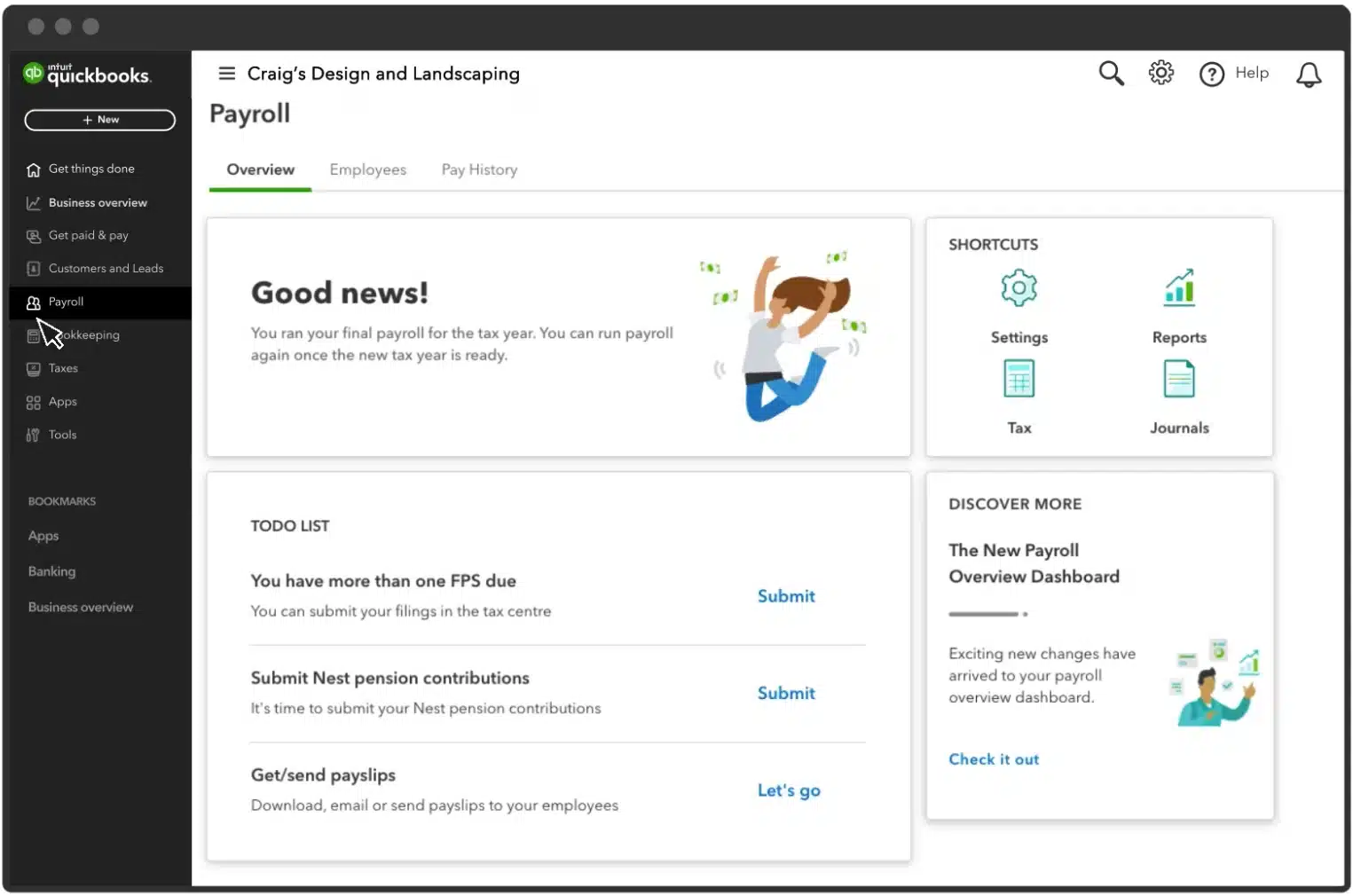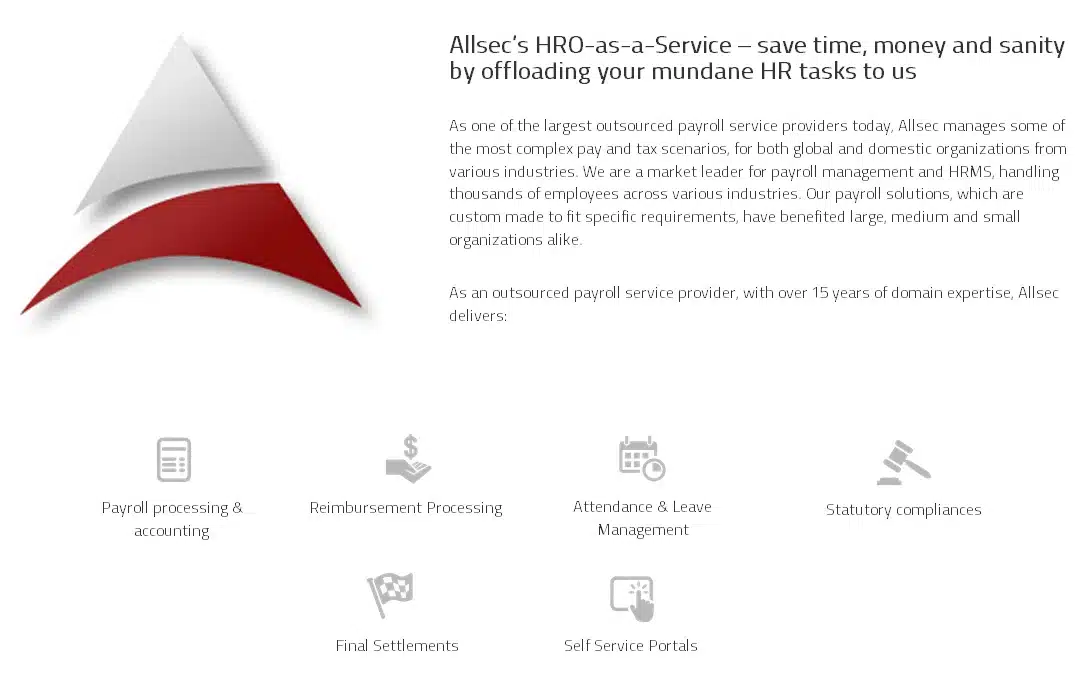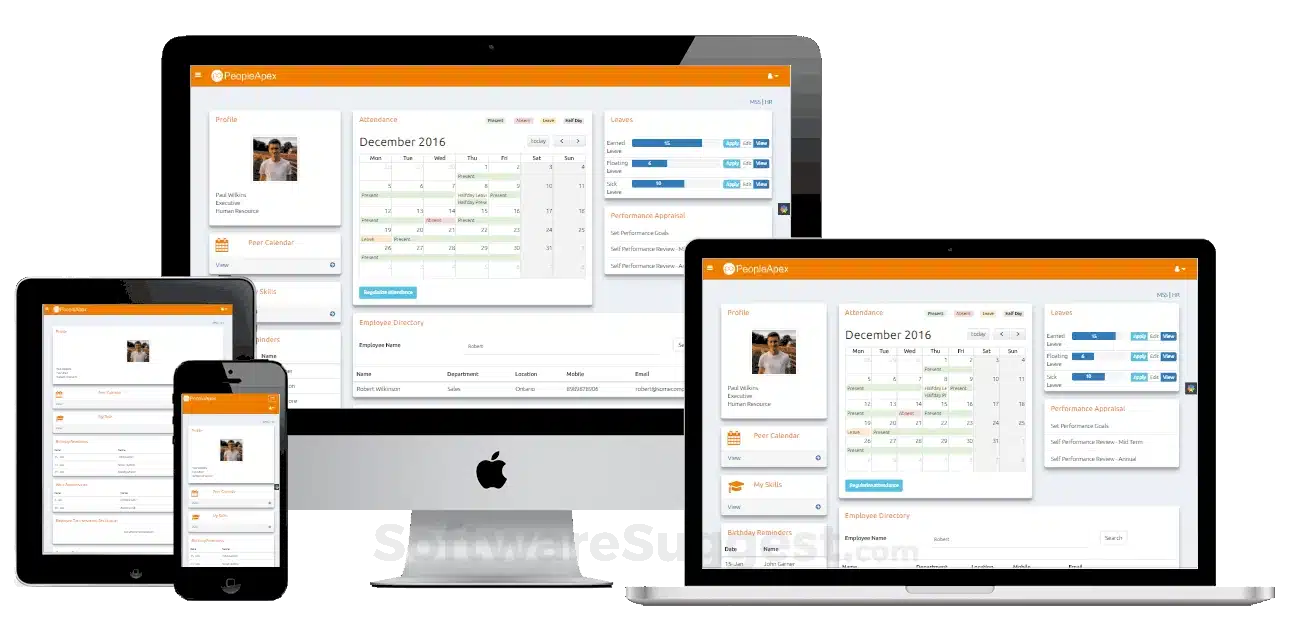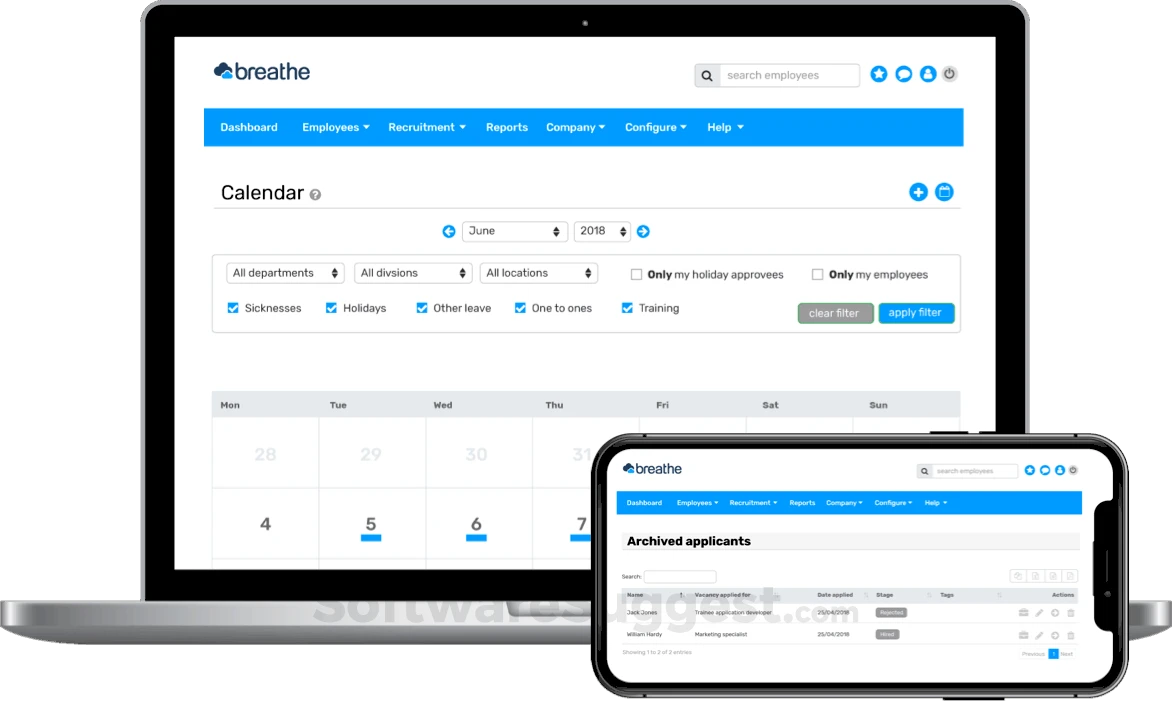Drowning in payroll hassles? Missed cutoffs, miscalculated 13th-month pay, accidentally deviating from BIR tax tables, and SSS/PhilHealth contribution errors; sounds like a lot of work to tidy up! Kaya, the solution? Use payroll software to ease up payroll burdens.
However, there are so many payroll systems out there, so how do you know which one’s the most suitable? Huwag kang mag-alala, as HashMicro Payroll Software, has everything a Filipino company might need, including a BIR-CAS system, automated payroll, and various tracking tools to ensure accurate salary each time.
We’ve also provided a curated list of 22 Best Payroll Software for Business in the Philippines (2025), so that you can objectively consider the most suitable payroll application for your business.
Key Takeaways
|
Table of Contents

60-Second Summary
- HashMicro: Best for unlimited user utilization and BIR localization system
- Payroll.PH: Best for businesses needing localized payroll
- ADP: Best for multinational companies
- Jeonsoft: Best for businesses needing customized payroll
- Sprout Solutions: Best for SMEs looking for a simple payroll
- Payday.ph: Best for startups and small businesses
- Remote: Best for companies needing a reliable payroll system
- GreatDay HR: Best for small to mid-sized businesses
- Deel HR: Best for businesses looking to outsource payroll
- FreshBooks: Best for small businesses needing an easy-to-use HR system
Risks of Having An Outdated Payroll Systems
1. Regulatory Challenges
As labor and tax laws evolve, such as those under the TRAIN Law, maintaining compliance becomes an ongoing challenge. Companies must keep track of changes to rules regarding overtime pay, holiday wages, and mandatory contributions to SSS, PhilHealth, and Pag-IBIG.
Outdated payroll systems often struggle to manage these regulatory updates, leading to potential compliance risks when relying on manual payroll processing.
2. Financial Losses from Errors and Inefficiencies
Manual payroll processing is prone to mistakes in calculating benefits and deductions. Payroll inaccuracies, including under or over-payments, often require corrective actions that consume HR resources.
Additionally, manual systems often waste several business days on audits and tax filings, diverting HR from more strategic functions.
3. Limited Oversight and Control
Older payroll systems typically lack the capability to provide real-time reporting, making it challenging for HR and finance teams to monitor payroll processes and tax calculations.
Modern payroll solutions overcome this by offering integrated dashboards that give immediate access to payroll information.
4. Poor Integration with Workforce System
Traditional payroll systems are often not integrated with other workforce management tools, such as time tracking, payroll during pay periods, and absence management.
Modern payroll software resolves this by enabling seamless integration and automation, ensuring accurate and timely payments. Integrated systems can automatically calculate night shift differentials for remote workers, reducing the need for manual adjustments.
5. Compliance Risks from Outdated Technology
Using outdated technology heightens compliance risks, as manual updates to reflect regulatory changes can result in delays and errors. Failure to quickly update tax rates or overtime rules can result in non-compliance penalties.
Cloud-based HR and payroll systems, however, offer automatic updates, helping businesses stay compliant with the latest regulations.
Benefits of Using A Payroll Software
Managing payroll manually can be time-consuming and prone to errors, leading to delayed payments and compliance risks. With payroll software, businesses can streamline payroll processing while ensuring accuracy, efficiency, and legal compliance.
Here are the key benefits of using payroll software to enhance your payroll management system:
- Improve efficiency and accuracy: It reduces the time and effort required to process payroll manually while minimizing human errors in calculations, ensuring employees are paid correctly and on time.
- Compliance: Keeps up-to-date with tax laws and regulations, reducing the risk of penalties for non-compliance.
- Data safety: Offers secure storage and handling of sensitive employee financial information.
- Cost-control: Lowers the cost of processing payroll by reducing the need for a large payroll department.
- Employee access: Often includes employee portals where workers can view their pay slips and tax information and request time off, enhancing transparency and communication.
A payroll system is valuable for businesses looking to optimize their payroll processes, improve accuracy, and ensure compliance while providing a better employee experience
What is Payroll Software?
Payroll software is a tool that automates the process of paying employees. It efficiently manages different types of compensation, including wages, salaries, bonuses, and commissions. Additionally, the software calculates deductions for taxes and benefits and generates payslips.
Payroll system integrates with timekeeping and HR systems to ensure that all financial transactions related to employee compensation are accurate and compliant with local tax laws and regulations.
According to a survey conducted by the Philippine Institute of Certified Public Accountants (PICPA), 82% of participants reported that using payroll software simplified complying with Bureau of Internal Revenue (BIR) audits.
This software calculates employee pay based on hours worked, commissions, and other factors while accounting for taxes, social security contributions, and other deductions. It can also handle direct deposit information, produce detailed reports for financial analysis, and ensure compliance with employment and tax laws.
Need to know!
Payroll headaches? Let AI handle it! Hashy AI automates salary calculations, tax deductions, and payslips. Ensuring error-free payroll every time. Pay smarter, not harder!
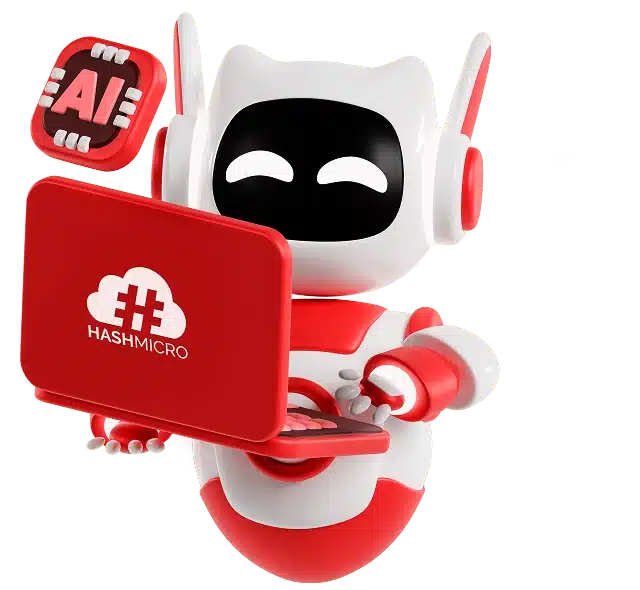
Get a Free Demo Now!
List of 22 Best Payroll Software in Philippines
Looking for the perfect payroll system software? We’ve rounded up the 22 Best Payroll Software for Business in the Philippines (2025) handpicked for their power to simplify payroll, reduce errors, and keep your business running smoothly.
1. HashMicro
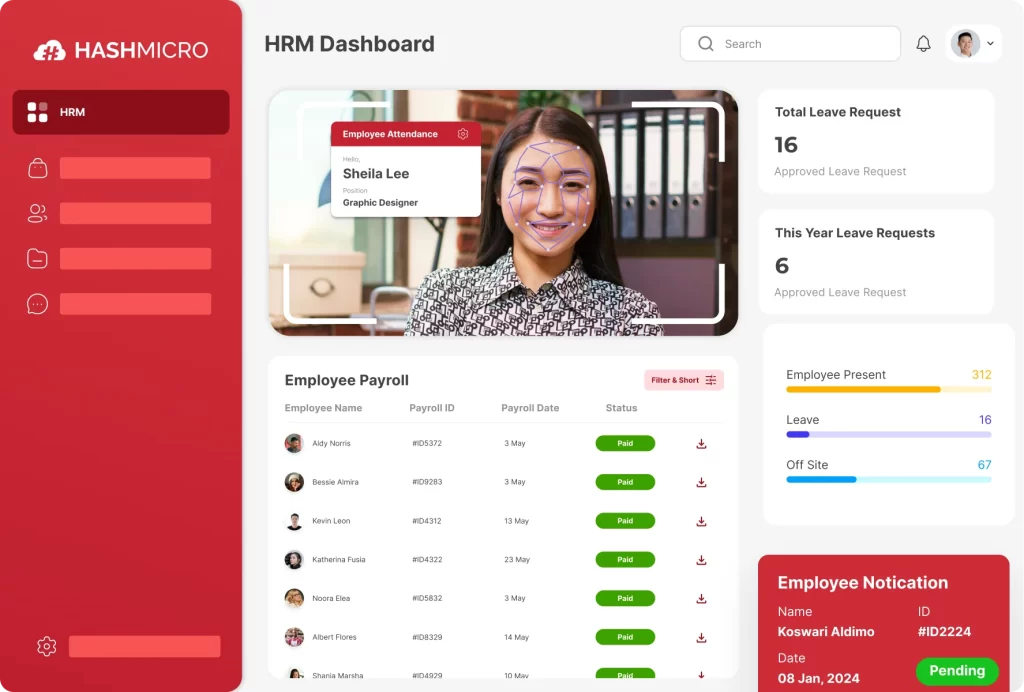
HashMicro’s payroll software is a solution for businesses in the Philippines. It offers a comprehensive platform that simplifies payroll management and automates the calculations needed to pay the employees’ salaries while considering benefits, local taxes, and other conditions and considerations.
As a leading software company, HashMicro has built a strong reputation for reliability and excellence. Trusted by over 2,250 clients in Southeast Asia, the software demonstrates its capability to effectively address end-to-end business needs.
One of HashMicro’s key strengths is its seamless integration with other modules and systems. This allows companies to automate workflows, from HR to financial management, in one centralized system.
Key Features:
- Daily and Hourly Payslip Management: This feature allows you to customize payslips for hourly or daily employees.
- Overtime Management: This feature automatically calculates and compensates overtime in payroll, so the employees can be paid overtime based on their wages.
- Built-in Professional Templates: The software uses pre-designed templates for consistent and professional documents, and the companies can customize the templates based on their requirements.
- Fully Localized Tax Calculation: HashMicro software complies with the Philippines’ tax laws and automates calculations, including SSS, Philhealth, and Pag-Ibig, as well as the BIR Tax Table. It can also update automatically following a regulation change.
- Approval Delegation with Follow-Up Automation: This feature allows the delegate payroll approvals and receive automated follow-up notifications.
- Employee Self-Service: Employees can access payroll, request time off, and update details via mobile.
- Reporting Automation: HashMicro generates detailed reports to aid decision-making and compliance and provides comprehensive details as receipts to HR, the company, and employees.
| Pros | Cons |
|
|
Ideal Users:
HashMicro Payroll Software is suitable for Philippine businesses seeking an all-in-one payroll management solution and can cover end-to-end business processes.
The pricing scheme below provides detailed insight into what your business might need. This vendor also offers transparent pricing and upfront cost, so you don’t need to worry about additional costs when using this software.
2. Payroll.PH
Payroll.ph is a payroll system designed to simplify payroll management for businesses in the Philippines. The system provides customizable settings for HR, timekeeping, and payroll.
It also makes payroll processing, including allowances, government contributions, taxes, and loans, into a quick, efficient process. With Payroll.ph, businesses can easily generate government reports, HR documents, payslips, certificates, and bank transmittals.
Key Features:
- Simplified payroll processing
- One-click payroll management
- Document management
- HR Information System (HRIS)
| Pros | Cons |
|
|
Ideal Users:
Payroll.ph is ideal for Philippine-based businesses, especially SMEs, needing an integrated payroll system for efficient timekeeping, compliance, and HR management.
Price:
Available upon request
3. ADP
The ADP system is designed to serve companies of all sizes, from small businesses to large corporations. The platform automates essential payroll tasks, including wage calculations, tax withholdings, and payments, ensuring timely and accurate employee compensation.
Additionally, ADP offers comprehensive tax filing services, managing deductions and filings for easy compliance with laws.
Key Features:
- Benefits Administration
- Talent Management
- Compliance Management
| Pros | Cons |
|
|
Ideal Users:
ADP cloud-based payroll system is particularly well-suited for businesses already using ADP suite of products or those looking to integrate their payroll with other business processes in a seamless ecosystem.
Price:
₱2,284.62 – ₱4,627.82 per month + ₱234.32 per employee
4. Jeonsoft 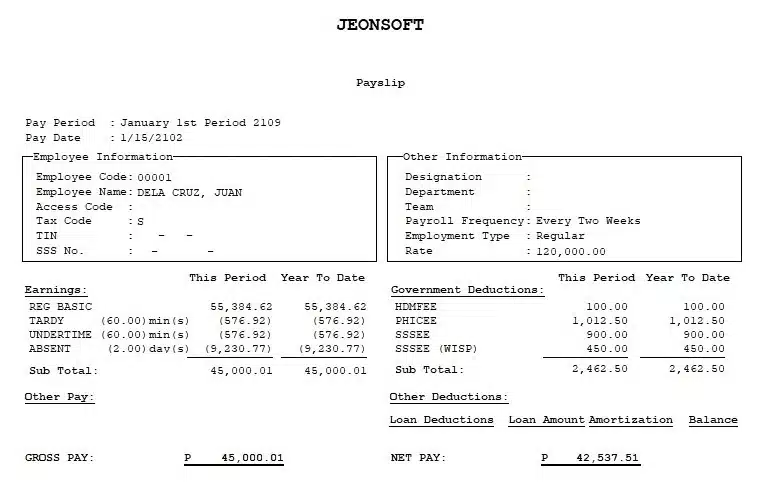
JeonSoft Payroll Suite (JPS) is an on-premise payroll system in the Philippines that offers integrated HR, timekeeping, and payroll modules. It operates on a perpetual license, making it a one-time investment suitable for companies seeking long-term, self-hosted solutions.
JeonSoft has been a notable payroll software Philippines for over 20 years that serves more than 1,350 clients and processing over 100 million pesos in payroll amounts.
Key Features:
- Automated payroll system
- Time and attendance management
- HR information system (HRIS)
- Loan management system
| Pros | Cons |
|
|
Ideal Users:
Jeonsoft ideal for businesses seeking an efficient, scalable, and secure platform, though its pricing may be a consideration for smaller businesses.
Price:
Available upon request
5. Sprout Solutions

Sprout Payroll is a cloud-based payroll solution designed for businesses of all sizes, offering accurate payroll calculations, government report generation, and compliance with BIR, PHIC, SSS, and Pag-IBIG regulations. It helps reduce payroll processing time while maintaining payroll accuracy.
Key Features:
- Payroll Outsourcing
- Payroll Audit
- Payroll-on-demand
- Government benefits administration
- SSS, PHIC, HDMF compliance services
| Pros | Cons |
|
|
Ideal Users:
Sprout Solutions is perfect for businesses looking to simplify processes and enhance efficiency.
Price:
Starts from ₱5,000 per months.
6. Payday.PH
Payday.PH is a full-service payroll business suite that’s automated, customizable, secured, and backed by reliable customer support. The platform simplifies tasks such as automated payroll processing, tax calculations, and many more.
Key Features:
- Automated payroll system
- Time & attendance management
- A robust HR information system (HRIS)
- Automated recruitment system
| Pros | Cons |
|
|
Ideal Users:
PayDay.ph is ideal for SMEs and large enterprises in the Philippines that need automated payroll, HR, and timekeeping solutions with customizable features and compliance support.
Price:
Available upon request
7. Remote
Remote helps businesses manage and pay full-time and contract workers globally. It handles payroll, benefits, taxes, stock options, and compliance in over 50 countries. With a flat-rate price and no hidden fees, it helps you manage costs easily.
Its all-in-one platform simplifies payroll. You can run payroll, automate expense tracking, and create reports all in one place for better efficiency.
Key Features:
- Payroll management
- Integrated HR tasks and payroll processes.
- Tax management
- Compensation management
- Multi-country local laws compliance
| Pros | Cons |
|
|
Ideal Users:
PayrollMaster is perfect for growing businesses looking to streamline their payroll processes and transition to a reliable payroll software solution.
Price:
Starts at $299 (₱17,515.42)/employee/month.
8. GreatDay HR
GreatDay HR is a payroll system that helps businesses manage salaries easily and accurately. It lets payroll officers add custom salary components like bonuses, taxes, and deductions to fit company and employee needs.
For companies with different pay schedules, like in construction, it supports custom payroll periods such as weekly or bi-weekly. Employees can securely view their e-payslips anytime through their phones, protected by personal passwords.
Key Features:
- Automated Payroll Processing
- Tax and Compliance Management
- Payroll Disbursement
- Payroll Reports and Analytics
| Pros | Cons |
|
|
Ideal Users:
GreatdayHR is a good fit for companies seeking an all-in-one payroll management system.
Price:
₱70/employee/month for HRIS and payroll.
9. Deel 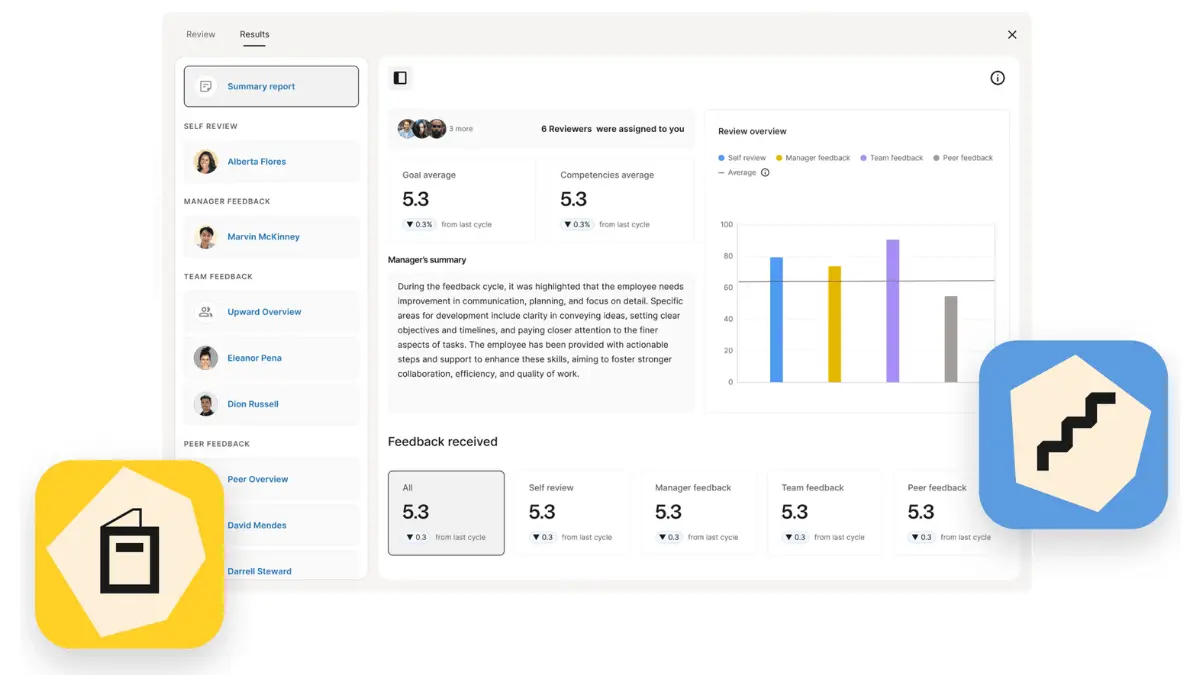
Deel is a global payroll and compliance platform that allows businesses to hire, pay, and manage employees in the Philippines without setting up a local entity. Moreover, it simplifies payroll, taxes, and HR compliance, so companies can easily navigate local regulations.
In addition, Deel automates tax documents, payroll, and benefits and supports full payroll operations for companies with direct employees in the Philippines. It’s also good for BPOs whose scope of work is managing outsourcing payroll from other companies.
Key Features:
- Payroll management
- Integrated HR tasks and payroll processes
- Tax management
- Compensation management
- Multi-country support
| Pros | Cons |
|
|
Ideal Users:
Deel payroll system is ideal for businesses in the Philippines that value the flexibility of hiring global talent and are looking for an all-encompassing platform that addresses payroll, compliance, and payments across borders.
Price:
Available upon request
10. FreshBooks
FreshBooks Payroll, powered by Gusto, is primarily designed for U.S.-based businesses and does not offer direct payroll services for the Philippines.
However, Filipino businesses can still use FreshBooks for core accounting functions like invoicing, expense tracking, and financial reporting, while integrating with third-party payroll solutions that handle local compliance, taxes, and employee benefits.
Key Features:
- Expense tracking
- Invoicing and payment processing
- Employee time tracking
- Financial reporting
| Pros | Cons |
|
|
Ideal Users:
Freshbooks payroll system is ideal for businesses looking for flexibility in choosing their payroll provider while keeping their financial management integrated within one platform.
Price:
$7.60–$24/month + add-ons ($11/user, payroll: $40 + $6/person).
11. Rippling
Rippling is a payroll software that can run the entire payment process in minutes. Users can compare pay runs, track changes in gross pay and deductions, and approve with confidence. Custom pay types, such as bonuses and tips, can be set up on a recurring or one-time basis.
As a unified system, Rippling syncs payroll with benefits, expenses, and time tracking. Approved hours, reimbursements, and deductions are updated in real time. It also integrates with accounting software like Xero, QuickBooks, and NetSuite.
Key Features:
- Automated salary calculations, tax withholdings, and filings
- Time and Attendance Tracking
- Benefits administration
- Customizable Workflows
- Employee Onboarding
| Pros | Cons |
|
|
Ideal Users:
Rippling employee payroll system is particularly beneficial for companies in the tech, consulting, and creative industries that operate on a global scale and need to scale their workforce quickly and compliantly across borders.
Price:
Available upon request
12. Papaya Global
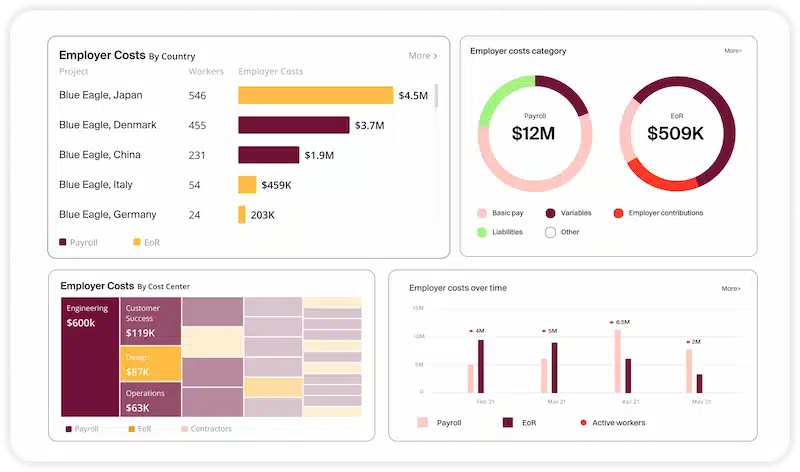
Papaya Global is a cloud-based payroll system that manages global payroll, contractor payments, and vendor transactions with guaranteed landing dates. Its cross-border payment platform supports worker payouts worldwide while following local laws.
Through their Professional Employer Organization (PEO) services, businesses can hire and pay employees in the Philippines without establishing a local entity.
Key Features:
- Global payroll management
- Benefits administration
- Employer of Record (EOR) Services
- Contractor payments
- Real-time reporting and analytics
| Pros | Cons |
|
|
Ideal Users:
Ideal for companies with a globally distributed workforce, such as multinational corporations, businesses hiring remote workers, or those with international contractors.
Price:
$15–$599/employee/month (contractors: $30, Enterprise EOR: $599).
13. Keka
Keka is a comprehensive HR and payroll software designed to streamline employee management for businesses of all sizes. The platform offers a range of features, including automated payroll processing, time and attendance tracking, and employee self-service portals.
As a fully integrated platform, Keka connects with Xero, QuickBooks, and other tools. Designed for teams of 30 to 500 employees, Keka simplifies payroll and multiple organizations within a single platform.
Key Features:
- Automated payroll processing
- Employee self-service portal
- Expense management
- Reporting and analytics
| Pros | Cons |
|
|
Ideal Users:
Keka is suitable for small to medium-sized enterprises (SMEs), particularly in India. It is especially beneficial for companies with 50 to 200 employees and annual revenues between $1M to $10M.
Price:
$139–$222/month for up to 100 employees.
14. QuickBooks
QuickBooks Payroll is an employee payroll system that can integrate with its accounting software. While QuickBooks Online is available in the Philippines, its integrated payroll services are primarily designed for U.S.-based businesses.
However, Filipino businesses can still utilize QuickBooks Online for comprehensive accounting needs and manage payroll through manual entries or by integrating third-party payroll solutions compatible with QuickBooks.
Key Features:
- Payroll management
- Tax calculations
- Benefits management
- Employee self-service portal
| Pros | Cons |
|
|
Ideal Users:
QuickBooks Online Payroll is designed for small to midsize businesses, including accountants, financial professionals, hospitality services, construction firms, and trucking companies.
Price:
₱1,116–₱2,349/month
15. Allsec
Allsec is a payroll system Philippines to simplify payroll and HR processes for businesses of all sizes. It features an extensive Employee Self-Service (ESS) portal, offering a low-touch, adaptive, and scalable platform suitable for various team sizes and worker profiles.
The system also integrates advanced technologies such as chatbots, Optical Character Recognition (OCR), Artificial Intelligence (AI), and Enterprise Resource Planning (ERP) interfaces.
Key Features:
- Automated payroll processing
- Employee self-service portal
- Benefits administration
- Reporting and analytics
| Pros | Cons |
|
|
Ideal Users:
Allsec HR Payroll suits medium to large businesses with complex, multi-country payroll and compliance needs.
Price:
Available upon request
16. PeopleHum
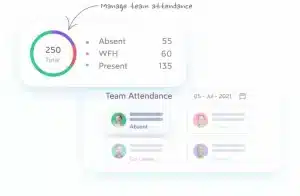 PeopleHum is an all-in-one Human Capital Management (HCM) platform that aims to automate HR processes. It automates payslips, time and attendance tracking, payroll reports, and statutory compliance, making payroll hassle-free.
PeopleHum is an all-in-one Human Capital Management (HCM) platform that aims to automate HR processes. It automates payslips, time and attendance tracking, payroll reports, and statutory compliance, making payroll hassle-free.
With multi-level approvals and a unified HCM system, everything is in one place, giving you full control over payroll processing. The transparent dashboard lets you see payroll details instantly.
Key Features:
- Automated payroll processing
- Compliance management
- Self-service portal
- Reporting and analytics
| Pros | Cons |
|
|
Ideal Users:
PeopleHum is ideal for small to mid-sized businesses and enterprises that need integrated recruitment, employee management, payroll, and engagement.
Price:
Starts at $2 per employee per month.
17. Spine
Spine Payroll Software is a comprehensive payroll system Philippines that makes managing employee salaries easy with features like record-keeping, leave tracking, and real-time reports. It calculates salaries for weekly, monthly, or hourly pay.
The system allows businesses to email payslips in bulk, provide employees with tax details and income tax forms, and import past payroll data quickly. It also offers pre-made letter templates for standard messages and a web-based module for easy remote access.
Key Features:
- Automated payroll processing
- Compliance management
- Employee self-service portal
- Customizable reports
| Pros | Cons |
|
|
Ideal Users:
Spine Payroll Software is particularly well-suited for businesses of all sizes in the Philippines looking for a comprehensive, integrated payroll system.
Price:
Available upon request
18. ZingHR
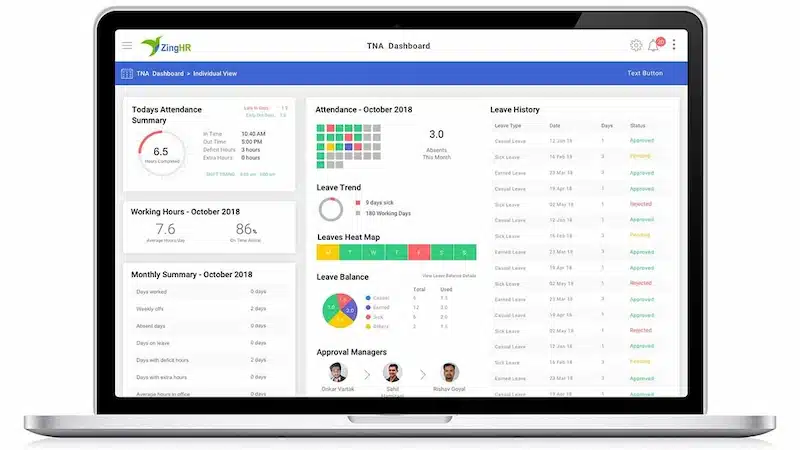
ZingHR’s cloud-based payroll software lets businesses outsource payroll processing so they can focus on growth. The platform integrates HR operations, payroll, benefits, and compliance with laws.
With Zero Touch Payroll, businesses can automate weekly, daily, or hourly salary payments. The system also offers real-time payroll data access and automated tax filing. It offers full data security and complies with local laws.
Key Features:
- Automated payroll processing
- Compliance management
- Time and attendance management
- Analytics and reporting
| Pros | Cons |
|
|
Ideal Users:
ZingHR is ideal for businesses needing payroll management along with HR tools like talent management and performance evaluation.
Price:
Starts at $5.50 per employee per month and a customized quote.
19. PeopleApex
PeopleApex Payroll Software simplifies payroll for businesses in India, the U.S., Canada, and more. It also helps set up payroll foundations, calendars, pay groups, and tax settings while following local regulations.
In addition, businesses can automate earnings, deductions, bonuses, leave, and taxes for accurate calculations. Meanwhile, employees can submit tax declarations themselves.
Key Features:
- Global payroll management
- Compliance management
- Time and attendance management
- Employee self-service portal
| Pros | Cons |
|
|
Ideal Users:
Its multi-country payroll capability makes PeopleApex valuable for companies with employees in various countries who must navigate the complexities of different tax and labor laws.
Price:
Available upon request
20. Justworks

As a payroll system in the Philippines, Justworks provides a wide range of services, including automated payroll, benefits management, regulatory compliance, time and attendance tracking, and health insurance. It is designed to simplify HR processes and ensure their automation.
Key Features:
- 24/7 support
- Run off-cycle payroll
| Pros | Cons |
|
|
Ideal Users:
Justworks Payroll suits small businesses and contractor-only teams, solo entrepreneurs, and larger companies, but not support cannabis, gambling, adult entertainment, household employment, or agriculture.
Price:
$8/employee/month plus a $50 base fee.
21. Gusto
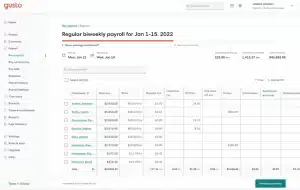 Gusto is a cloud-based HR system that automates payroll while also integrating with benefits like health insurance and pensions. This way, businesses can manage everything in one place.
Gusto is a cloud-based HR system that automates payroll while also integrating with benefits like health insurance and pensions. This way, businesses can manage everything in one place.
However, Gusto mainly serves U.S. businesses and doesn’t offer full payroll services in the Philippines. Still, it helps U.S. companies hire and pay international workers, including those in the Philippines.
Key Features:
- Tax Filing and Compliance
- Employee Self-Service
- Payroll Reports and Analytics
| Pros | Cons |
|
|
Ideal Users:
Gusto online payroll is well-suited for businesses in the Philippines seeking a payroll solution compliant with local regulations and easy to use.
Price:
$35–$180/month + $6–$22/person.
22. Breathe
Breathe is a modern HR and payroll software designed to simplify and streamline people management for small businesses. With its user-friendly interface and cloud-based platform, Breathe helps businesses manage key HR tasks, including employee records, payroll, performance, and leave management.
Key Features:
- Commitment-free plans
- Dedicated service and support
- Payroll Entry
- Tax Calculation
| Pros | Cons |
|
|
Ideal Users:
Breathe is suitable for small and medium businesses looking to simplify processes and enhance efficiency in payroll system.
Price:
£18–£500/month based on company size, with £10 add-ons.
Criteria for Choosing A Payroll Software
Choosing the best payroll software is critical for enterprises in the Philippines. Compliance with local tax laws, government mandates, and employee benefits is complex and vital for business operations.
The right software simplifies payroll processing, ensures compliance, enhances efficiency, and supports strategic payroll management. Here’s how Philippine enterprises can select the best payroll system for their needs:
- Compliance with local regulations: The software must comply with payroll Philippines tax laws and regulations. It should also automatically update in response to changes in legislation to maintain compliance.
- Scalability and flexibility: Look for software that can scale with your business growth. Enterprises need the ability to handle a large and diverse employee base, multiple pay structures, and various employment types.
- Integration capabilities: Choose software that integrates seamlessly with your existing HRIS systems, ERP systems, and other business tools. Integration ensures data consistency, reduces manual data entry, and streamlines business processes.
- Functionalities: The ideal software should offer a comprehensive set of features such as time and attendance management, benefits administration, tax filing, and reporting capabilities.
- Ease of Use: Intuitive payroll systems with clear dashboards and self-service features allow employees to access payslips, tax info, and attendance details, easing HR’s workload. A user-friendly interface boosts productivity and reduces errors, with self-service portals cutting payroll inquiries by over 30%.
- Data security and privacy: The software must have robust security measures to protect against data breaches and ensure privacy. Look for features like encryption and multi-factor authentication.
- Mobile Access: With over 60% of people in the Philippines owning smartphones, mobile-friendly payroll systems are essential. Mobile apps allow employees to access payroll info anytime, while HR teams can manage tasks remotely. For field-based workers, mobile access ensures timely responses to inquiries, promoting transparency and building employee trust.
- Support and training: Adequate support and training are crucial for maximizing the benefits of payroll system software. Ensure the provider offers comprehensive support and reliable customer service to address issues promptly.
- Vendor reputation and reliability: Consider feedback from current users in the Philippines about the software’s performance, reliability, and the vendor’s responsiveness to customer needs.
By following these key factors, you can narrow down your options and select payroll software that complies with Philippine regulations and supports your business’s specific needs and long-term goals.
Conclusion
Selecting the best payroll software is a critical decision for enterprises in the Philippines. With the vast array of options available, it is essential to carefully assess each software’s features against your business to find the perfect match.
HashMicro is one of the best payroll system software available to Philippine enterprises. Its comprehensive features, scalability, and user-friendly interface make it a choice for businesses looking to streamline payroll processes efficiently.
Witness firsthand how HashMicro can streamline your payroll processes and support your business’ growth. Don’t miss this opportunity to elevate your payroll system—try the free demo now!

FAQ About Payroll Software
-
How does the payroll system work in the Philippines?
In the Philippines, payroll operates monthly, varying by employer and industry. Employers must issue wages every two weeks, with intervals not exceeding 16 days. Additionally, the country mandates a 13th-month pay benefit, providing employees with an extra month’s salary as a bonus.
-
What are the payroll rules in the Philippines?
Employers in the Philippines must pay their employees bi-weekly or twice a month, with intervals of no more than 16 days. The law prohibits employers from making monthly-only payments but does allow weekly payments if desired.
-
What is HR and payroll system?
Human resources primarily focus on managing employee relations, while payroll handles employees’ financial compensation and the payment process. Although these departments have separate roles, they share overlapping responsibilities.
-
Is payroll part of bookkeeping?
Payroll and bookkeeping are different: Payroll is about paying employees, while bookkeeping involves recording all financial transactions in a business.





